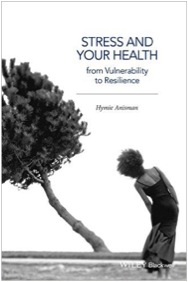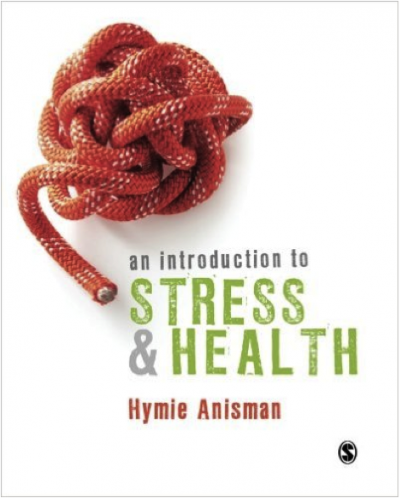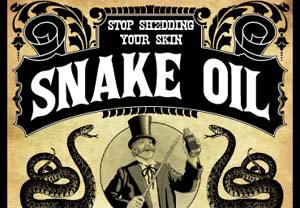 By Hymie Anisman, Department of Neuroscience, Carleton University
By Hymie Anisman, Department of Neuroscience, Carleton University
Placebo responses, as most people are aware, refer to responses elicited by a treatment that can’t actually have direct organic effects on neurobiological processes. The effects of placebos are often considered in the context of pain relief or in some psychological conditions, such as depressive symptoms. However, placebo effects have also been reported in response to purported administration of muscle relaxants or drugs that affect cardiac functioning (e.g., blood pressure), and in programs to quit smoking.
The value of the placebo
The placebo response can be exceptionally powerful, and it’s thought that the efficacy of many drug treatments, in part, includes a placebo component. In fact, in response to mild or moderate pain, placebos can be as powerful as a low dose of morphine. Thus, it’s unfortunate that not everybody is a ‘placebo responder’, and only 25-50% of individuals exhibit analgesic responses. Many variables contribute to these individual differences, including personality factors, such as optimism and altruism (Morton et al., 2014), as well as the presence of particular genes (Hall et al., 2015).
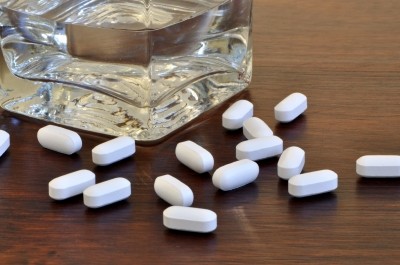 The development of a placebo response is particularly tied to the expectancy of positive effects being obtained, and various environmental stimuli that are linked to feeling better (e.g., hospitals themselves have distinct aromas that may act in this capacity) may contribute to the occurrence of the placebo-related perceptual, behavioral and clinical changes (Vase et al., 2015). In fact, environmental triggers that instigate placebo-like responses can be subtle to the extent that individuals might not even be aware that they were being affected. For instance, seeing another patient receiving effective pain medication primed individuals so that they expressed pain relief after being given the same treatment. Conversely, if patients expected that a genuine drug would not have positive effects it was less likely to be beneficial (referred to as a nocebo response).
The development of a placebo response is particularly tied to the expectancy of positive effects being obtained, and various environmental stimuli that are linked to feeling better (e.g., hospitals themselves have distinct aromas that may act in this capacity) may contribute to the occurrence of the placebo-related perceptual, behavioral and clinical changes (Vase et al., 2015). In fact, environmental triggers that instigate placebo-like responses can be subtle to the extent that individuals might not even be aware that they were being affected. For instance, seeing another patient receiving effective pain medication primed individuals so that they expressed pain relief after being given the same treatment. Conversely, if patients expected that a genuine drug would not have positive effects it was less likely to be beneficial (referred to as a nocebo response).
Placebo effects are most often considered in the context of inert medications, but they also appear in other forms, including mechanical or electrical devices to reduce pain or muscle aches, acupuncture needles inserted into inappropriate locations, and faith healing can arguably be considered a placebo. Likewise, physicians themselves might be a component of a broad placebo treatment that encourages well-being and our expectancies and trust related to the physician (provided that there is trust) may have considerable bearing on whether prescribed treatments will be followed and positive outcomes obtained (Stewart-Williams & Podd, 2004).
Not surprisingly, the emergence of placebo responses is also likely dependent on previous learning about the treatment, which encourages the belief or expectancy that the treatment will have positive effects (Kong et al., 2013). Importantly, social comparisons and social learning also affect the manifestation of placebo effects, and like a social contagion, if my friends (or members of my ‘ingroup’) find relief using a particular treatment, then I’ll respond in the same way (Benedetti, 2014).
This, finally, brings us to the point of this blog. On occasion you might have heard a comment such as “Oh, it’s just a placebo response” in reference to some other person feeling better after being given a treatment. What’s this “Oh, it’s just…” all about? If the person is feeling better then that’s great, and if it’s due to expectancies causing particular brain neurochemical changes that were responsible for reduced pain, that’s perfectly fine (BTW, placebos actually do cause several types of neuronal changes that likely contribute to sensory and mood alterations). The person with a migraine doesn’t care how the meds they took got rid of the headache, so long as it did the job (to quote Deng Xiaoping “It doesn’t matter whether a cat is white or black, as long as it catches mice”).
Then there’s the phoney treatments
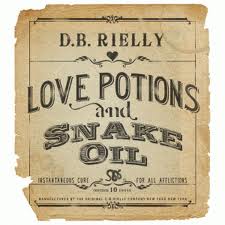 There’s no question that in many ways, inert agents (that could in a sense be considered as “phoney” treatments) have positive effects. But, what if a person tries a particular treatment, possibly following the lead of others, but this agent has absolutely no positive effects on the progression of a disease (other than to produce a placebo effect, and perhaps to transiently set their mind at rest), but some other treatment had been available that could cure the illness or, perhaps, stop its progression. There are many cases in which exactly such things have happened, even to people who are very smart. They choose some sort of wacko treatment (shark cartilage, certain nuts, particular herbal teas, and a great number of other ‘natural products’) instead of those that have a known track record.
There’s no question that in many ways, inert agents (that could in a sense be considered as “phoney” treatments) have positive effects. But, what if a person tries a particular treatment, possibly following the lead of others, but this agent has absolutely no positive effects on the progression of a disease (other than to produce a placebo effect, and perhaps to transiently set their mind at rest), but some other treatment had been available that could cure the illness or, perhaps, stop its progression. There are many cases in which exactly such things have happened, even to people who are very smart. They choose some sort of wacko treatment (shark cartilage, certain nuts, particular herbal teas, and a great number of other ‘natural products’) instead of those that have a known track record.
In this regard, one of the greatest and most successful scams in the alternative health domain is that of homeopathy. This remarkably dopey treatment has been around for over 200 years, and seems to be still going strong in some groups (especially in communities near universities, and in upscale neighborhoods where people wear those odd shoes, Birkensomethings, and favour shopping at the fruit and nuts groceries that are referred to as health food stores, although they seem to sell the same foods that can be obtained just about anywhere, but being ‘organic’ the price is jacked up). The popularity of homeopathy might have developed because its been been considered an ‘alternative medicine’ rather than an ‘alternative scam’.
The scam of homeopathy
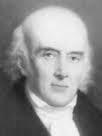
Samuel Hahnemann
Homeopathy was introduced by Samuel Hahnemann in 1796, based on his view that a substance that causes illness symptoms can also be used to cure people who are sick (a doctrine that argues that ‘like cures like’). In an odd sort of way, this does make sense. We do, after all, we do actually use dead or inactivated viruses as vaccines to prevent illness stemming from later exposure to the same live virus. In the case of vaccines there’s a perfectly reasonable explanation as to why they’re are effective, and there are good explanations (usually) when they fail to work as they should.
In the case of homeopathic medicines, it seems that a bait and switch is being pulled. You don’t actually get the relief that’s advertised beyond that of placebo response, which might be okay, except that homeopathic providers get people to use homeopathy as an alternative to treatments that are effective. Don’t believe me? Check out this piece on homeopathy from CBC Marketplace. The chutzpah in this is boggling.
So, what is homeopathy and why does it have the word ‘medicine’ attached? Moreover, what does it take to become a flim-flam man (or woman), regularly milking ‘marks’ for whatever they’re worth. Based on the symptoms expressed, an individual’s personality characteristic, and some psychological condition displayed, the homeopath, based on years of specialized pseudo-science training, selects a particular substance to be used in treatment. This agent will then be diluted, and this solution diluted again, and again and again, so many times that the final product will have none or hardly any of the original molecules present. But, magically, the molecules that are present, having once been exposed to the solution, will have a ‘memory’ of that original solution! Expecting to be cured, and having paid a considerable sum for a cure, cognitive dissonance may enhance the placebo effect that would otherwise occur (Ernst, 2002).
Viruses and cancerous cells aren’t frightened by homeopathic treatments, and continue apace in creating illness or death. Likewise, reliable scientific reports have documented the failure of homeopathy to produce positive effects in illnesses ranging from, asthma, arthritis, chronic fatigue syndrome, eczema, cholera, malaria, and heroin addiction. In fact, these treatments aren’t effective for anything! Nonetheless, there are line-ups of wanna-be doctors wanting ‘accreditation’ to offer homeopathic treatments, and once they graduate they seem to be doing a brisk business capitalizing on the malaise and fears of others. Stunningly, in some countries homeopathic treatments are (or until recently were) covered by universal health care.
Why people might turn to homeopathy
There are several reasons that homeopathy might be popular in some sets. They might not trust the ‘medical establishment’ and like the sound of ‘alternative medicine”. Or, they might not trust standard vaccines or the compounds in which the vaccine is carried (thimerosal) and so somehow think that homeopathy will be okay (actually, it’s a guarantee that it won’t cause autism as it’s only water). Besides, they might like that ‘rebel’ flavor that comes with boycotting the ‘medical establishment’. It’s also possible that a lack of knowledge brought them to the point of using this form of treatment.
 Alternatively, perhaps they were convinced by Prince Charles (the British Dude who seems not to have a real job, but lots of opinions), who has been a strong advocate of homeopathy. Incidentally, his grandfather George VI and his great grandfather George V were both advocates of homeopathy (the organic apple doesn’t fall far from the natural tree). In Britain there are currently about 6,000,000 people who see homeopathic practitioners, and homeopathic remedies have increased by almost 25% this past year, despite the British Medical Association comparing it to Witchcraft. Think it’s less popular in Canada? If you visit a large health food store, such as Whole Foods, which has substantial book sections, you might have noticed a number of books dealing with the benefits of homeopathy. Some of these stores even have ‘consultants’ who are there to offer advice on health, including homeopathic remedies. I think it would be about as odd to ask the grocery kid about health advice, as asking my doctor for advice on food recipes.
Alternatively, perhaps they were convinced by Prince Charles (the British Dude who seems not to have a real job, but lots of opinions), who has been a strong advocate of homeopathy. Incidentally, his grandfather George VI and his great grandfather George V were both advocates of homeopathy (the organic apple doesn’t fall far from the natural tree). In Britain there are currently about 6,000,000 people who see homeopathic practitioners, and homeopathic remedies have increased by almost 25% this past year, despite the British Medical Association comparing it to Witchcraft. Think it’s less popular in Canada? If you visit a large health food store, such as Whole Foods, which has substantial book sections, you might have noticed a number of books dealing with the benefits of homeopathy. Some of these stores even have ‘consultants’ who are there to offer advice on health, including homeopathic remedies. I think it would be about as odd to ask the grocery kid about health advice, as asking my doctor for advice on food recipes.
Hymie Anisman has recently authored two book providing an evidence-based approach to understanding the role of stress on human health, and identifying characteristics and behaviours that render people more vulnerable or resilient. Both are available at Amazon.ca
Pills image courtesy of Michelle Meiklejohn at FreeDigitalPhotos.net
